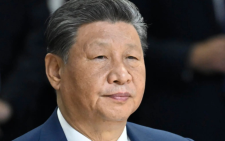Shun politics and allow rule of law to prevail

Yesterday, Kenyans celebrated Jamhuri Day. The day marks the date when Kenya became a republic in 1964.
Since then, it has been an incredible journey filled with highs and lows, great expectations, disappointments, giant strides, and unfulfilled hopes and aspirations on the political, social and economic fronts.
Compared to the celebratory ululations of “Uhuru” and momentous achievements of freedom and nationalistic optimism for unity and prosperity that marked Independence Day in 1963, yesterday’s 59th Jamhuri Day celebrations were rather subdued.
Kenyans are going through a depressing period in the nation’s history still haunted by the three ills of poverty, ignorance and disease that the founding fathers identified with independence.
It’s a bleak economic situation of underdevelopment, an astronomical cost of living, starvation affecting millions, high levels of unemployment, and poor health and social services in rural and urban areas.
The gap between the few rich and the poor millions continues to grow deeper and wider, aggravated by endemic corruption and a permanently toxic, deceptive political atmosphere.
It defeats logic why anyone would still be talking about the recent acrimonious election that left the country deeply politically divided as in the 2007 election impasse that threatened a catastrophe.
Unpalatable memories of the repercussions of that disputed election, the rule of law and the 2010 Constitution that entrenches the sovereignty of the people guaranteed the peace that prevailed following the thin margins of yet another fiercely contested and disputed election.
The 2022 election voting statistics confirm the pervasive influence of ethnic calculations in presidential election dynamics. This extends to the Legislature, now effectively a rubber stamp of the Executive, in a patently domineering presidential system of governance. The season of defections is back.
National leaders are advised to desist from obfuscating self-righteous post-election rhetoric that is unhealthy to promoting unifying reconciliatory national dialogue and instead dwell on more pressing issues confronting citizens across the political divide.
Last week, UN Secretary-General Antonio Guterres told the ongoing UN Convention on Biological Diversity (COP15) in Montreal, Canada, that ecosystems have become playthings of profit. Human activities are laying waste to once-thriving forests, jungles, farmland, oceans, rivers, seas and lakes.
Kenya, as the headquarters of the UN Environment Programme should veer away from negative localised political machinations based on expired electoral contest rivalries to focus on citizens’ economic woes and Guterres’ warnings on environmental destruction.
Our land, water and air are poisoned by chemicals and pesticides, and choked with plastics. The addiction to fossil fuels has thrown our climate into chaos. Kenya is no exception.
All of this destruction comes at a huge price – lost jobs, economic devastation, rising hunger, higher costs for food, water and energy, diseases, and a degraded planet.
As they join the global action to protect the environment, Kenyans should also vigorously and robustly defend the Constitution and their sacred rights enshrined in the supreme law of the land.
Recent lessons have shown that despite its seemingly impregnable pillars, the Constitution is not safe from the manipulation of crafty politicians chiseling at its walls.
—The writer comments on political and environmental affairs












